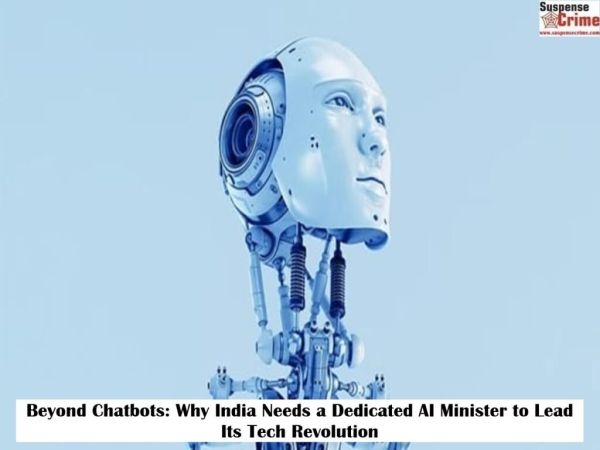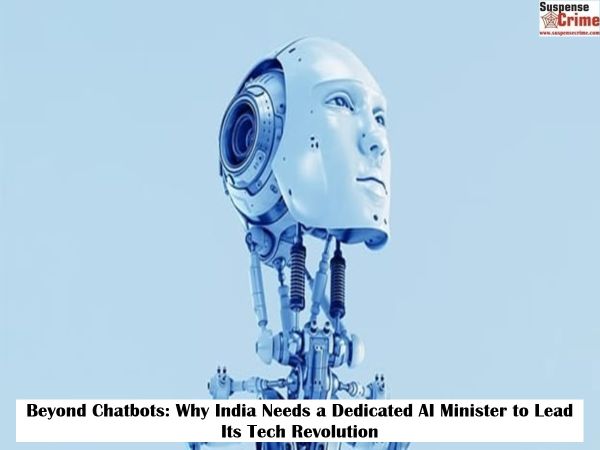

Suspense crime, Digital Desk : Artificial intelligence is rapidly evolving from a niche technology into a force that will reshape entire economies and societies, much like electricity or the internet did in their time. For India to harness this power and not get left behind, a bold new approach to governance may be necessary: the appointment of a dedicated Chief AI Minister.
Currently, India’s approach to AI is fragmented. The responsibility is scattered across various departments, including the Ministry of Electronics and Information Technology (MeitY), the Department of Science and Technology, and NITI Aayog. While each plays a role, this lack of a single, accountable leader creates a significant problem. It’s like trying to build a national power grid with the agriculture, transport, and finance ministries each in charge of a small piece—the result is slow progress, conflicting priorities, and a lack of a unified vision.
An AI Minister, or a leader in an equivalent high-level position, would change this by providing a central point of command. Their job would be to spearhead a cohesive national AI strategy with four key missions:
Drive Domestic Capacity: Champion the creation of the essential infrastructure for AI, including massive computing power (like supercomputers), vast datasets for training models, and the cultivation of top-tier talent.
Architect Regulation: Craft intelligent, forward-thinking policies that encourage innovation while managing the significant risks AI poses, from job displacement to ethical dilemmas and algorithmic bias.
Lead Global Diplomacy: Represent India on the world stage, ensuring the nation has a powerful voice in shaping international norms, standards, and collaborations around AI.
Ensure Widespread Benefit: Oversee the integration of AI into critical sectors like healthcare, agriculture, and education to solve real-world problems and ensure the benefits of the technology are shared across the entire population.
This isn’t just a theoretical exercise. The global AI race has already begun. The United States has appointed a Chief AI Officer, and the United Kingdom has established an AI Safety Institute. These countries recognize that a centralized strategy is crucial for maintaining a competitive edge.
Without a dedicated leader to steer the ship, India risks being a passive consumer of AI technology developed elsewhere, rather than an architect of its own digital future. Appointing an AI Minister isn’t about adding another layer of bureaucracy; it’s a strategic necessity to ensure India can effectively navigate the opportunities and challenges of the coming AI era and secure its place as a global tech powerhouse.
Read More: Beyond Chatbots: Why India Needs a Dedicated AI Minister to Lead Its Tech Revolution